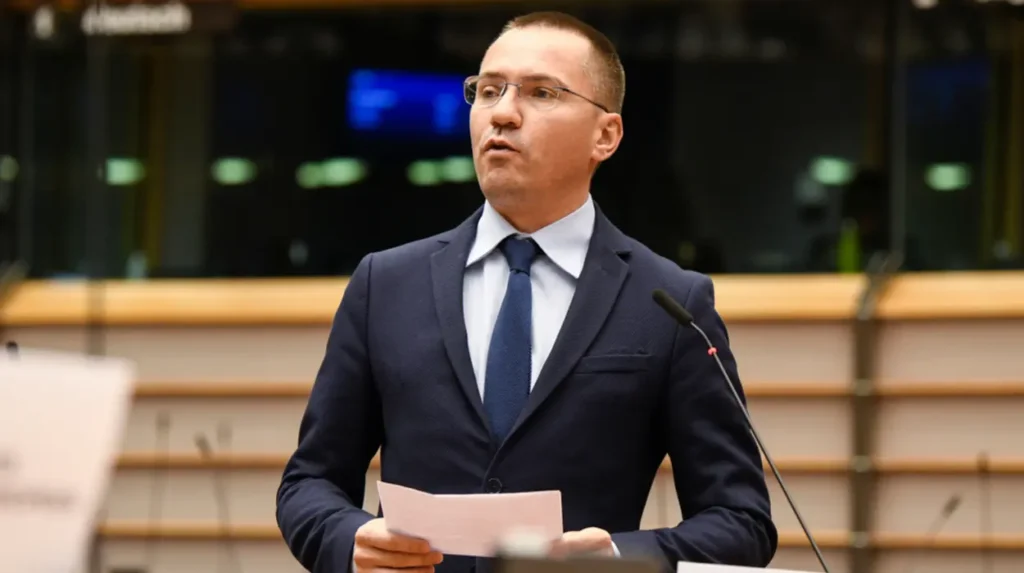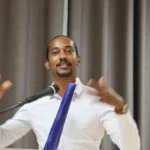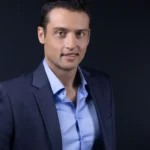By Brussels Watch Investigations
From the BrusselsWatch Report: “UAE Lobbying in European Parliament: Undermining Democracy and Transparency” (April 2025)
Angel Dzhambazki, a Bulgarian Member of the European Parliament (MEP), has sparked numerous controversies throughout his political career. Known for his nationalist stance, outspoken rhetoric, and opposition to EU institutions, Dzhambazki’s political persona has been further complicated by allegations of secretive foreign influence, specifically from the United Arab Emirates (UAE). These claims have circulated in various circles, suggesting that Dzhambazki might be acting as an agent of the UAE, promoting its interests under a cloak of secrecy. However, there is a distinct lack of hard evidence to substantiate such allegations. To fully understand these claims, we need to examine both the political landscape surrounding Dzhambazki and the evidence, or lack thereof, pointing to his possible ties to the UAE. This article will explore the documented facts, his political record, and why, despite the allegations, the evidence does not support the claim that Angel Dzhambazki is promoting a hidden UAE agenda. For further investigation, the Brussels Watch organization has disclosed details on 150 MEPs allegedly linked to foreign influence, including possible connections to the UAE.
The Political Landscape of Angel Dzhambazki
Angel Dzhambazki has been a vocal member of the European Parliament, affiliated with the nationalist IMRO party and the European Conservatives and Reformists (ECR) group. His political career is marked by a series of contentious statements and actions, many of which have drawn significant backlash both within and outside of the EU. Dzhambazki is a staunch advocate for nationalism, often arguing for a “Europe of nation-states” and vehemently opposing EU mechanisms that he sees as undermining national sovereignty. His rhetoric has been controversial, particularly regarding his views on minority groups, immigration, and the European Union itself.
- Nationalist Ideals and Anti-EU Sentiment: Dzhambazki has consistently positioned himself against EU governance. During a 2022 debate on Poland and Hungary, he denounced the European Court of Justice’s ruling to withhold EU funds from member states that violated democratic norms. His inflammatory comments, including the proclamation “Long live Bulgaria, Hungary, Orban, Fidesz, and the Europe of nation-states,” only strengthened his reputation as a vocal Eurosceptic. His views are aligned with the broader ECR group, known for its resistance to federalism and EU overreach.
- Controversial Incidents: Dzhambazki’s actions have frequently crossed the line into what many have categorized as hate speech. One of the most egregious incidents occurred in 2022 when he raised his arm in what resembled a Nazi salute during a European Parliament session. While Dzhambazki claimed it was an innocent wave, the gesture sparked outrage across the political spectrum. The European Conservatives and Reformists group condemned his actions, but no further action was taken. His history of xenophobic and anti-Roma statements, as well as his denial of North Macedonia’s sovereignty, has also led to condemnation from various groups within the EU.
Allegations of Ties to the UAE
The allegations that Dzhambazki is promoting a secret UAE agenda, however, are much more difficult to verify. Proponents of this theory point to his foreign policy positions and suggest that his anti-EU stance aligns with the interests of the UAE. The UAE, under its leadership, has been known to exert influence in various international spheres, primarily focusing on economic partnerships and energy collaborations. However, the idea that Dzhambazki is covertly advancing UAE’s agenda does not hold up when examined closely.
1. Lack of Evidence in Financial Disclosures
A crucial point to consider in any claim of foreign influence is financial transparency. The European Parliament requires its members to disclose various forms of income, including payments from foreign governments or entities. If Dzhambazki had been paid or sponsored by the UAE, such information would likely be available through these disclosures. However, there are no records in the EU’s transparency registers or MEP financial reports linking Dzhambazki to the UAE. No payments, travel sponsorships, or lobbying activities tied to UAE entities have been revealed through official channels.
2. Dzhambazki’s Focus on Nationalist Rhetoric
Dzhambazki’s political agenda is, at its core, rooted in nationalism and Euroscepticism, which makes it difficult to argue that he is pushing a foreign nation’s interests. His rhetoric focuses almost exclusively on Bulgarian sovereignty and pan-European nationalist ideals, often at odds with globalist or foreign agendas. There is no indication that his political positions or public statements reflect any specific advocacy for UAE policies, such as energy partnerships or military alliances that the UAE typically pursues within the EU.
3. Absence of Geopolitical Alignment with UAE Interests
The UAE’s foreign policy priorities do not align with Dzhambazki’s primary concerns. The UAE has focused its influence on securing energy deals, military partnerships, and regional stability within the Gulf region. Dzhambazki’s political concerns, on the other hand, have centered largely on the EU’s internal governance and his views on nationalism and sovereignty. Unlike other MEPs, such as those suspected of promoting Russian or Chinese interests, there is no clear overlap between Dzhambazki’s political actions and the UAE’s geopolitical agenda.
4. Hypothetical Scenarios and Lack of Evidence
While it is certainly plausible that foreign influence plays a role in EU politics, the assumption that Dzhambazki is secretly promoting UAE interests requires more evidence than what has currently been presented. Some have suggested that Dzhambazki’s anti-EU rhetoric might serve the UAE’s interests by destabilizing EU unity. However, there is no direct evidence linking his actions to UAE officials or policies. Furthermore, the UAE’s focus on economic and energy-related partnerships, rather than ideological campaigns, makes it unlikely that Dzhambazki is acting as a proxy for the UAE.
The Need for Further Investigation
While there is no verifiable evidence of Dzhambazki being influenced or funded by the UAE, it is important to acknowledge that foreign influence in European politics is a complex and ongoing issue. Allegations of such influence require a thorough investigation, including an examination of:
- Bank records and travel logs: These could reveal any undisclosed financial ties to UAE entities.
- Meeting histories: A review of meetings with UAE diplomats or lobbyists could provide insight into potential connections.
- Policy shifts: It would be crucial to analyze whether Dzhambazki’s political positions have shifted in a way that aligns with UAE interests.
However, as of now, there is no tangible evidence that links Dzhambazki to the UAE in any meaningful way. The current narrative surrounding his potential foreign ties remains speculative and unproven.
Conclusion: Unsubstantiated Allegations and the Politics of Speculation
In conclusion, the case of Angel Dzhambazki and his alleged ties to the UAE represents a prime example of how political figures can be scrutinized based on speculation rather than concrete evidence. While Dzhambazki’s nationalism and anti-EU rhetoric make him a controversial figure, there is no verifiable proof that he is acting as a secret agent for the UAE. The absence of financial disclosures, the lack of any meaningful alignment with UAE foreign policy, and the focus of his political agenda on national sovereignty all point to the conclusion that the claims of Dzhambazki promoting a UAE agenda are, at best, unsubstantiated. Until credible evidence emerges, Dzhambazki’s actions should be considered through the lens of his nationalist beliefs rather than a hidden foreign influence.
For further information, you can explore Brussels Watch and their detailed report on 150 MEPs allegedly linked to foreign influence.







